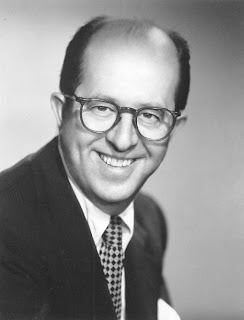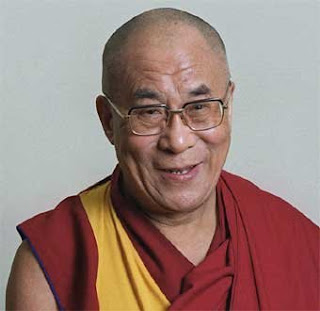
 In about 1994, I visited a friend of mine who was studying at Cambridge University. Whilst I was there, we went to visit a friend of hers who was having a kind of open afternoon thing, and tea and toast were being served (pretty much the staple of student life, and all too often the culinary accompaniment to late-night discussions about the state of the world).
In about 1994, I visited a friend of mine who was studying at Cambridge University. Whilst I was there, we went to visit a friend of hers who was having a kind of open afternoon thing, and tea and toast were being served (pretty much the staple of student life, and all too often the culinary accompaniment to late-night discussions about the state of the world).
There were some people there I hadn’t met before, and one of them was involved with Cambridge’s Tibet Support Group. As I’ve probably mentioned before, I’m interested in this issue, and when she mentioned that the Dalai Lama had visited to speak to them a few months previously, I asked what he was like.
“Hmm,” she said, and paused. Would she say he had a certain presence, I wondered? That he radiated a kind of indefinable warmth and compassion? That, despite everything he and fellow Tibetans have suffered, he was all smiles and laughter?
“He’s quite fat,” she said eventually. Hmph, thought I. Not quite what I was expecting, but undeterred, I launched into a frankly gripping anecdote from the news a couple of years prior to that date, which involved a student travelling in Tibet and being received very favourably by the local people because he was wearing a T-shirt featuring Phil Silvers (above, star of Sgt Bilko), and the Tibetans mistook it for a representation of the Dalai Lama (also above). But as I regaled the crowd with my tale, I was being met with slightly blank looks, as opposed to the nods and semi-smiles I was expecting as I approached the punchline (well, explanation). And suddenly I realised why.
Oh God, it dawned on me. They don’t know who Phil Silvers is.
Now, I wish I could pretend that this (true) story is being presented by way of demonstrating that my intelligence was superior to everyone in the room that day, but that’s almost certainly not the case, and so it’s not why I’m writing about it; what I’ve always felt it does demonstrate, though, is that there are often fairly major differences between academic ability and intelligence or general knowledge.
It’s not a new insight by any means – I’m sure we’ve all met people who seem to have a veritable alphabetti spaghetti of initials after their name on their business card, but seem to lack the basic social skills to go into a restaurant and order, for example, a plate of spaghetti. As the old saying goes, there are many things you don’t get from ‘book-learnin’, and anyway, the entry requirements for the University of Life are slightly less stringent, especially if you’re an old boy (or girl) of the School of Hard Knocks.
Anyway, all this is a typically Soanesian build-up to a current news story, the fact that the recent winners of the BBC quiz show University Challenge have had their victory withdrawn. One of the winning Oxford Corpus Christi team turned out not to be a student by the time they reached the final, and this is one of the entry requirements (and there now appears to be a suggestion that previous winners may have broken this rule as well).
Now, there’s some justifiable debate about whether Granada, the programme’s makers, have made this rule harder to comply with as their shooting schedule no longer correlates with the academic year (meaning you could be a member of a college in the opening rounds but have left by the time the team got, say, to the semi-finals), but the fact that attention’s now being paid to the practicalities of the way the show is made should also mean that people should also spot the reason why Oxford’s team screwed up, and made a mistake which led to the loss of the title: they could have asked a member of the production team if they were still okay to field the team member in question.
But they didn’t ask this simple question – and if they had asked and been told no, all teams (as I understand it) have a reserve team member, and so that’s who should have filled the chair. Instead, they don’t appear to have asked, and this simple mistake – I’d say schoolboy error – led to their disqualification.
If you’re not sure if you’re allowed to do something, or that you might not be doing it correctly, the best way to find out is to ask someone who knows. If you don’t ask, you could get into trouble further down the line, and it might also look slightly arrogant, as if you don’t care if the rules apply to you. Social skills and general worldly ability can often be rather over-rated, but even if you want to become a hardcore academic, it’s probably a good idea to learn how to deal with people, in case you have to deal with them when you’re trying to, for example, get a publisher to turn your PhD thesis into a book. Knowing absolutely everything ever is of pretty limited use if you can’t get people to listen to you in the first place because you’re rude or otherwise socially lacking.
Incidentally, I’ve only recently become a regular viewer of University Challenge for the simple reason that it’s fun to shout out the answers at home, and it has – in comparison with many other TV quiz shows – a lot of questions; most of them seem keen to pad the proceedings out with bursts of music or lighting effects or pre-scripted insults or other weak links, but UC just has loads of questions, on a good spread of subjects (it’s not all questions about Juvenal, some of the topics are pretty juvenile).
It’s just unfortunate that, in relation to the issue of eligibility, not one member of this year’s Corpus Christi team was willing to ask a question.


Leave a Reply